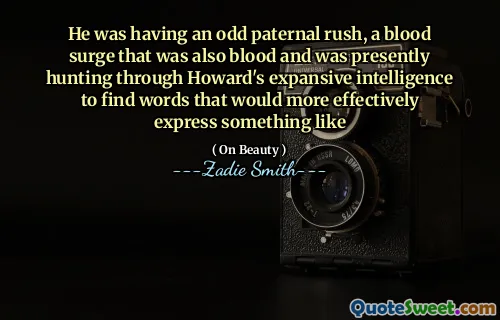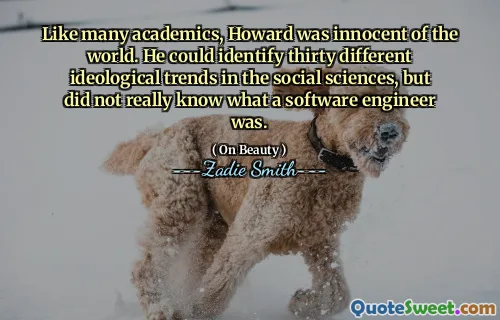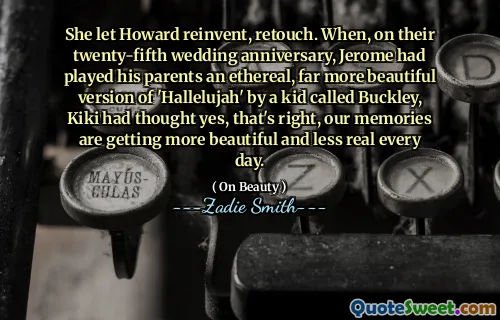
She let Howard reinvent, retouch. When, on their twenty-fifth wedding anniversary, Jerome had played his parents an ethereal, far more beautiful version of 'Hallelujah' by a kid called Buckley, Kiki had thought yes, that's right, our memories are getting more beautiful and less real every day.
This passage evokes the delicate interplay between memory and perception, highlighting how our recollections tend to evolve and sometimes soften over time. Kiki’s reflection on her parents’ anniversary celebration underscores the way preferences and nostalgic sentiments can become idealized, distorting the original moments. The act of Jerome playing a more beautiful, ethereal version of 'Hallelujah' symbolizes how art and shared experiences can transcend their initial context, becoming almost mythic in our memories.
The phrase 'our memories are getting more beautiful and less real every day' captures a universal truth about human cognition: as time passes, we often reshape our past in ways that provide comfort or coherence but may stray further from factual accuracy. This phenomenon can serve both as a source of comfort, allowing us to remember loved ones and milestones fondly, and as a challenge, since it may obscure the true details of those moments.
The scene suggests an acknowledgment of how memories are subjective, crafted by our emotions and desires. It invites reflection on how these romanticized versions of the past influence present perceptions and relationships. Do we cherish these idealized memories because they soothe us, or because they help us construct a version of reality in which love, beauty, and connection are eternal?
Overall, this excerpt presents a poetic meditation on memory, art, and the ever-shifting landscape of personal history. It encourages us to consider the balance between appreciating our memories' comforting illusions and recognizing their inherent imperfections, understanding that the beauty of memories often lies as much in their imagined perfection as in their factual origins.








